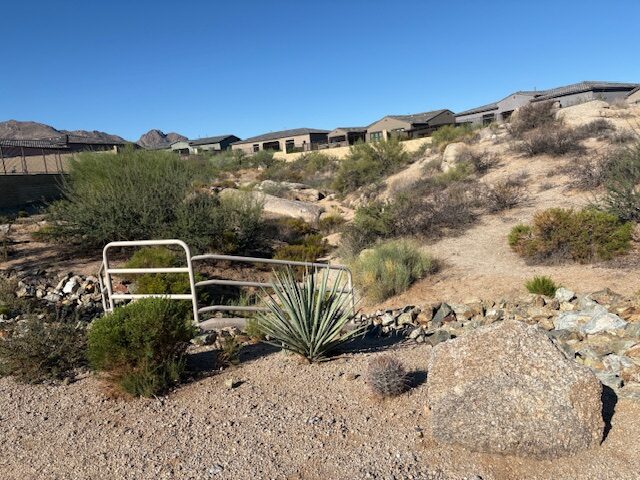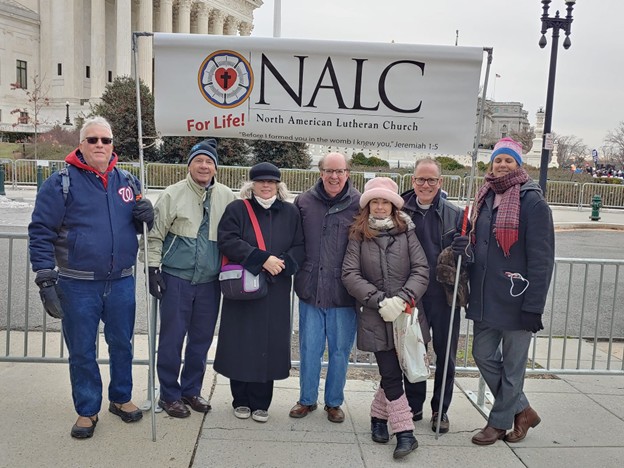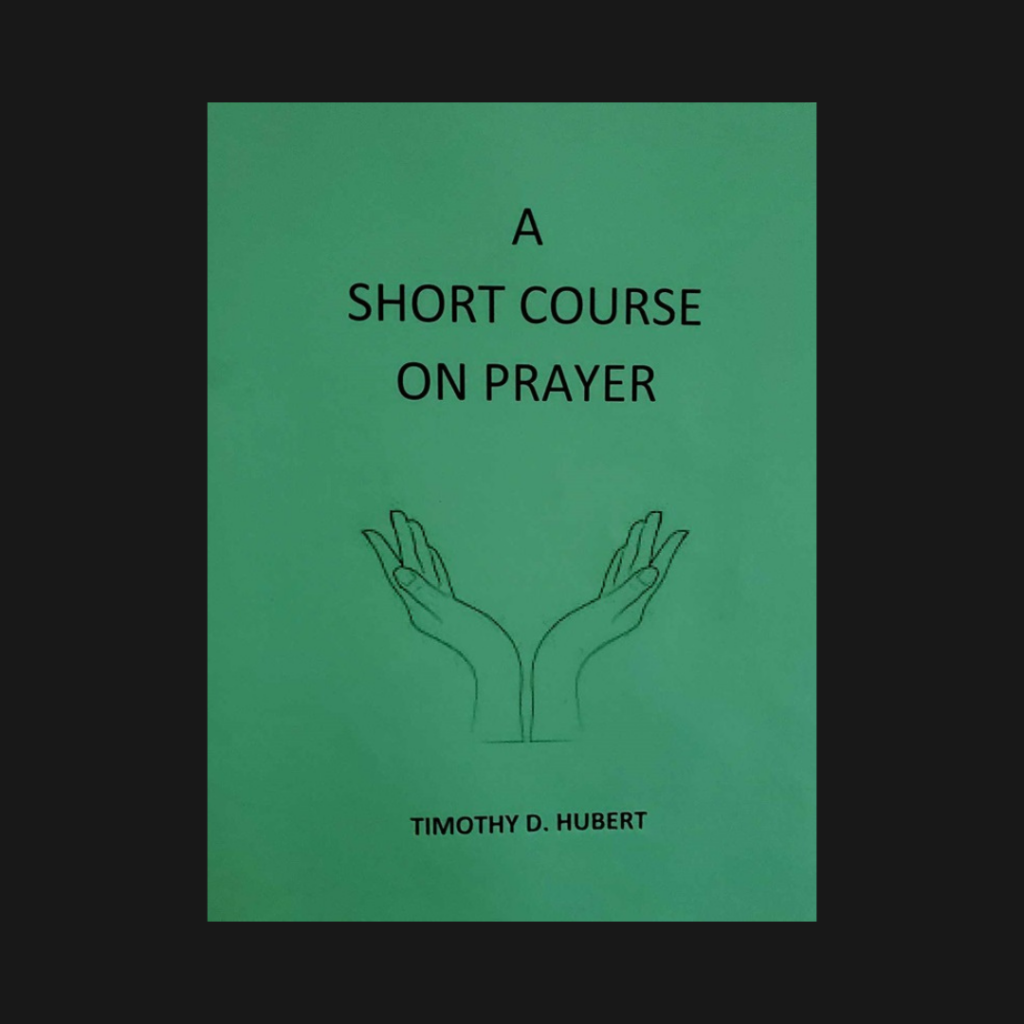LETTER FROM THE DIRECTOR DECEMBER 2025

YOU KNOW YOU ARE A GRINCH IF
One of the best-known Christmas stories of all time is “How the Grinch Stole Christmas” by Dr. Seuss. The Grinch was not happy. And because he was not happy, he did not want anyone else to be happy.
Now we all know people who behave like the Grinch. The Grinches we know do not live in faraway lands in caves on top of mountains. Instead they can be our neighbors – even our fellow church members. It would be easy to spot them if they had green skin. But outwardly they look like the rest of us. How can you know if you are having to deal with a Grinch? Worse yet, how can you know if you are becoming a Grinch? Here are five things that help us identify a Grinch. These same five things were true of another Grinch whose story is told in Matthews 2: 13-23, the Gospel reading this year for the First Sunday after Christmas. First –
YOU KNOW YOU ARE A GRINCH IF YOU GET UPSET WHEN OTHERS INVADE YOUR TERRITORY
The Grinch in Dr. Seuss’ story is standing on a ledge outside his cave on a high mountain overlooking the village of Whoville. He is upset because he has to listen to all the noise from the village down below. He had moved to the top of the mountain because he had wanted to get far away from Whoville and Christmas. But on the top of the mountain his territory was being invaded by the sounds of Christmas.
Matthew tells us about another Grinch whose territory also was being invaded – Herod. The Romans had made Herod King of the Jews. But most of his subjects hated him. He had built mighty works for them, including a greatly expanded Temple, but they hated him. Herod knew how much the people hated him, and that they might use any opportunity to overthrow him, so he spent his days living in constant fear that he could lose control at any time.
So imagine Herod’s utter terror when some wise men come from the east and ask, “Where is the child who has been born King of the Jews?” What do you mean, King of the Jews? I, Herod, am King of the Jews. Someone was invading Herod’s territory. No wonder Matthew tells us that Herod was frightened. And not just frightened, he was infuriated. And Matthew tells us that all Jerusalem was upset with him. If Herod is upset, everyone is upset.
Do you ever get upset because you feel that Jesus is invading your territory? You like the idea of His coming into your life as baby born in Bethlehem – with His gifts of love and peace and joy. But there are certain areas of your life where you have posted big, bold “No Trespassing” signs.
If God starts to invade that territory, suddenly all of your defenses go up, and like Herod and all Jerusalem you get upset.
Yes, both the Grinch and Herod got upset because someone was invading their territory. So they cooked up a plan. Which brings us to the second way in which you can tell if you are a Grinch.
YOU KNOW YOU ARE A GRINCH IF YOU ARE PRETENDING TO BE SOMETHING YOU ARE NOT
The Grinch knew that he was hated down in Whoville. But he also knew that Santa Claus was loved just as much as he was hated. So he made a Santa suit out of some old red material and placed a pair of antlers on the head of his dog, Max. Then he went down to Whoville as Santa, not to deliver presents, but to steal every present from under every tree and every ornament from every home.
Herod had a similar plan. When he heard that someone was invading his territory, he called together the chief priests and those who knew the Bible well to find out from them what the Bible has to say about where this new king was to be born. The Bible scholars told him, In Bethlehem. So he called the wise men back and said to them, “Go and search diligently for the child. And when you have found him, bring me word so that I also may go and pay him homage.”
Herod had no desire to worship Jesus. He was only pretending because he wanted to kill Jesus. And I often wonder how much pretending goes on at Christmas time. Like people who pretend to have far more financial resources than they actually have by the amount they charge to their credit cards. Both the Grinch and Herod were pretending to be something they were not. And then, third –
YOU KNOW YOU ARE A GRINCH IF YOU ARE NOT ABLE TO JOIN WITH OTHERS IN THEIR JOY
With his Santa Claus suit on, the Grinch and his dog Max head down the mountain into Whoville, where they go house to house, snatching all the toys that Santa Claus had left for all the good little Whoville girls and boys. Then he heads back up the chimney, packs the toys onto his sled, and then carries them up to the top of the mountain.
Herod, too, was surrounded by joy. He could have joined in, but he refused to. When the wise men heard where the Christ was to be born, they quickly headed off to Bethlehem. Can you imagine their joy. They had been on their journey for quite some time and now they were almost there. Matthew tells us, “When they saw that the star had stopped, they were overwhelmed with joy. On entering the house, they saw the child with Mary his mother; and they knelt down and paid him homage.”
What a moment of joy. But Herod did not get to experience any of that joy. Even though Jerusalem was only a few miles away and Herod could have gone there and found the source of true peace and joy that his troubled soul so desperately needed, still he chose to stay away. In fact, he even tried to destroy the source of joy. So close and yet so far.
Now there is nothing we can do about Herod. But we all know people who also are so close to joy. All around us are troubled people who are searching for peace and joy. Both the Grinch and Herod were so close to joy. But they were neither willing nor able to join in on that joy. Instead they wanted to rob others of their joy. It’s really sad to be around people who cannot stand to see other people happy.
I wonder if at some time early in his life the Grinch had been hurt very, very badly. I wonder if one of the Whovillers might have said or done something to him a long time ago that he just could not let go of. Is that how he had lost the ability to have joy, so now he wanted to steal the joy of others? Well that brings us to the fourth sign of being a Grinch.
YOU KNOW YOU ARE A GRINCH IF YOU GET INFURIATED IF YOUR PLANS DO NOT WORK OUT
God the Father knew how Herod would react so He warned the wise men to go home a different way. And He told Joseph to get Mary and Jesus out of Bethlehem.
Now I do not know why Herod did not just have the wise men followed so that he would only have to kill one baby and one family. But I do know, because Matthew tells us, how we reacted when he found out that he had been tricked. He was infuriated. So he sent soldiers to kill all the boy babies in and around Bethlehem up to the age of two years.
The Grinch also had a plan. He placed all the stuff he had gathered from Whoville onto his sled and then whipped little Max into pulling that sleigh to the highest cliff of the mountain, where he would throw everything over the cliff to be destroyed on the rocks below. But his plan did not work out quite as he had planned. And all that brings us to the fifth way that you can know if you are a Grinch.
YOU KNOW YOU ARE A GRINCH IF YOUR HEART DOES NOT GET CHANGED
By the time that little Max was able to reach the top of the mountain with the sleigh, it was Christmas morning. The Grinch pauses to listen to what is going on down in Whoville. He is expecting to hear the sound of great wailing, for all the presents and ornaments are gone. But much to his surprise, instead of wailing, he hears singing. And it is the same song as before they lost all the presents and ornaments. The Grinch wonders, How can this be?
Then all of a sudden, the sleigh begins to slip over the edge. The Grinch tries to grab it. He does not want it to be destroyed. Something miraculous has happened. His heart that had been two sizes too small has grown four sizes. And the sly grin that had been on his face is now replaced with a smile that says that something good has happened inside.
But unlike the Grinch, Herod awoke to the sound of great weeping. Hundreds of mothers weeping. Not because their children’s Christmas presents have been stolen, but instead because their children have been murdered.
Now we all know how the story ends for Dr. Seuss’ Grinch. He became a part of Whoville. He joined in their joy and carved the roast beast. He was not an outsider anymore. His heart had been changed. Unfortunately, that is where the similarity between the two stories ends. Herod’s heart was never changed. Matthew tells us that he died, and history tells us it was only about a year later. Herod had his chance, but he missed his chance. So he remained a Grinch forever.
The Grinch’s heart was changed by what he heard. This Christmas may your heart be changed by what you hear. We do not have the ability to change our own heart, but the love we can receive from the baby in the manger can change our hearts forever.
If you know someone who is a Grinch, do you stay away from them or can you see beyond the tough exterior and green skin and reach out to them in love? If you know someone who is a Grinch, reach out to him or her this Christmas. Let him or her see the love and joy of Jesus shining through your life. Who knows what hard and shriveled up heart just might get changed.
* * * * * * *
VIDEO MINISTRY
INTERIM MINISTRY
by Cathy Ammlung and Tim Hubert
Many thanks to NALC pastors Cathy Ammlung and Tim Hubert for this video about interim ministry. A link to their video can be found HERE. A link to our You Tube channel, which contains sixty-four reviews of books and videos on topics of interest and importance, can be found HERE.
In this video Cathy interviews Tim, who is now serving his twelfth interim parish. They discuss the various kinds of interim situations; what congregations can (and shouldn’t) expect from their interim pastor; and what are the key components to successful, productive interim ministry. It is not about how to obtain an interim pastor or start a call process. Rather it is about developing a good and trustful relationship with your interim pastor – and with one another, if there’s friction; using his or her compensated time wisely and well; and working toward a healthy, productive future.
* * * * * * *
PETROS NETWORK
The November issue of our newsletter, CORE Voice, contained an article about Petros Network and its partnering with many indigenous churches worldwide, including the world’s largest and reportedly fastest-growing Lutheran denomination – the Ethiopian Evangelical Church Mekane Yesus (EECMY). For those who missed it, a link to that article can be found HERE. A link to the page on their website that tells about their work with the Ethiopian Lutheran Church can be found HERE.
Reading that article, as well as Paul Borg’s article re the recent gathering of the Global Confessional and Missional Lutheran Network (LINK TO ARTICLE), give new meaning to what the angel said to the shepherds, “I am bringing you good news of great joy for all people.” (Luke 2: 10)
* * * * * * *
The beloved Christmas carol, “O Little Town of Bethlehem,” says about the small village where Jesus was born, “The hopes and fears of all the years are met in thee tonight.” May the love of Jesus fill you with hope and may His presence address all your fears.
Dennis D. Nelson
Executive Director of Lutheran CORE











